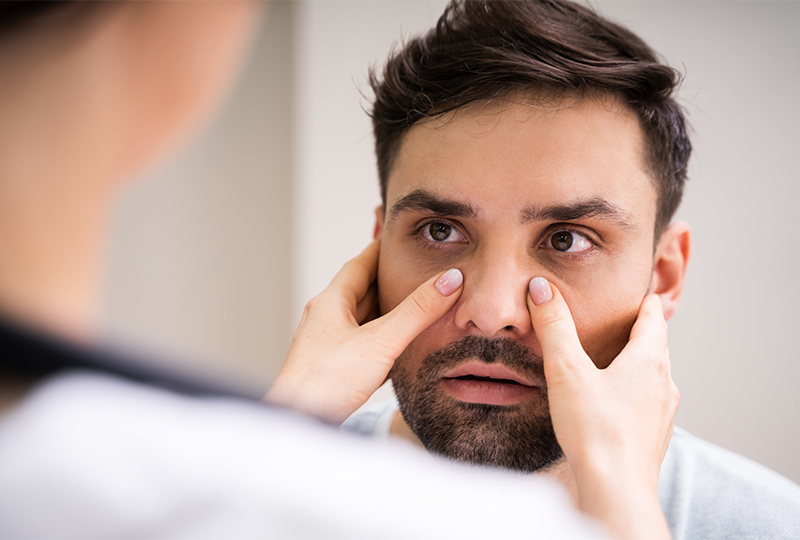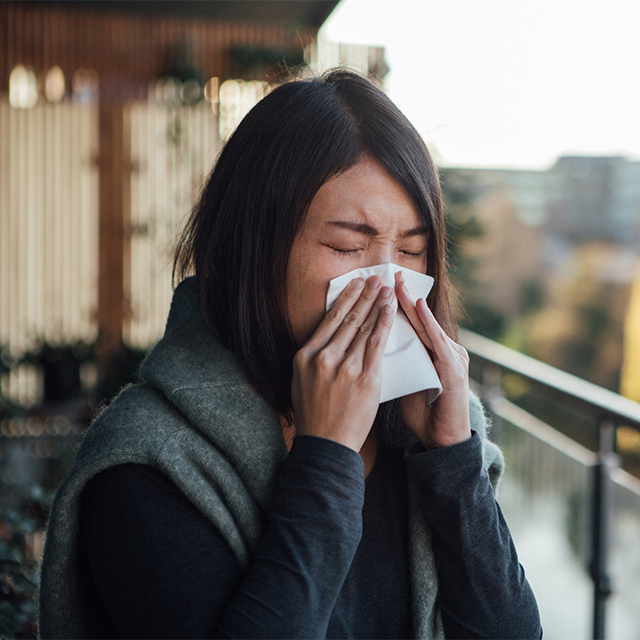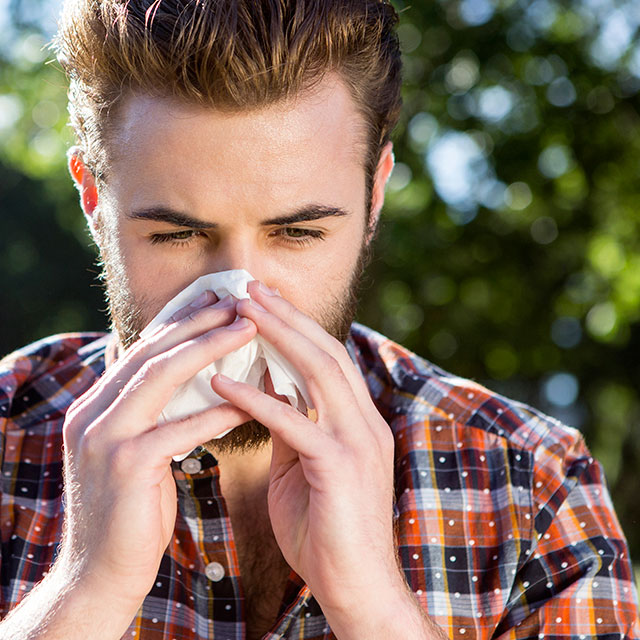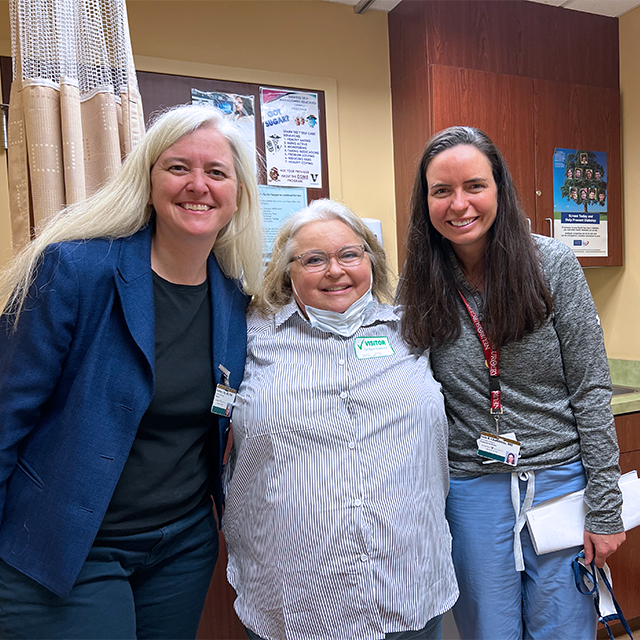Oh, the pressure. Here’s what causes it and what can be done about sinus issues.
To just be pockets of air, sinuses certainly can cause serious discomfort. Here, Dr. Derek Damin, who sees patients at the Vanderbilt Asthma, Sinus and Allergy Program in Gallatin, Tennessee, answers questions about what causes sinus issues and how these conditions are treated.
Causes of sinus pressure
Question: Where are the sinuses located?
Answer: We have a variety of sinuses, which are just air pockets in your skull. You have a sinus in your forehead called a frontal sinus, which can have just one large sinus or two or three different pockets. You have several little sinuses that go across the top of your nose called ethmoid sinuses. You have many sinuses throughout your cheeks and nasal cavity. You also have one deep sinus called the sphenoid sinus. Some people have an extra sinus in their nose called a concha bullosa.
Question: What causes sinus pain, pressure and other sinus issues?
Answer: These air pockets are not closed. All of them have a little opening into the back of the nose or throat area. It’s very important that air is able to circulate in and out of your sinuses as well as the natural mucous that’s produced in the lining of your sinuses. It has to be swept out as well. Those openings need to be open all the time. Anatomical problems, like a deviated septum and bone spurs, and medical issues can cause the opening to close or swell shut which causes pressure to build up leading to sinus pain. There are nerve endings that sense that pressure, and you can feel as though something is not right. It could be a headache, facial pain or a variety of other symptoms. It’s not reliable to say that pain or pressure alone is a sinus infection, but certainly, if you have one, it’s not unusual to have that sense of pain and pressure from those areas.
Question: Are some people more prone to sinus issues?
Answer: Yes, especially those who have an anatomical problem, like a deviated septum or nasal trauma where a bone spur developed. Also, around 25% of the population has allergies. People with allergies will have an increased amount of swelling of the lining of their nose, which is your body’s way of trying to protect you from something it thinks is going to hurt you. Some aren’t allergic but are very sensitive to their air quality, basically air pollution, like secondhand smoke or smoke from a fireplace, wood stove, candles or fragrances. These can be irritants which make your nose work overtime to protect you from them.
Question: How can people who are prone to sinus issues prevent them from getting worse?
Answer: If you have nasal allergies or anything that makes the lining swell shut so that the air can’t get in and mucous can’t get out, then you need to do what you can to try to reduce the swelling and reduce thick mucus production and maintain open passages. There are over-the-counter nasal sprays that can reduce the swelling in the lining and cut back on mucous production. Nasal sprays, in conjunction with oral decongestants, can help treat congestion that often leads to sinus problems. It is also important to have a long-term plan. To mitigate allergies or irritants, you can get allergy tested and consider allergy shots, which make you less susceptible to that type of inflammation. If you smoke or vape, we highly encourage that you stop (find some smoking cessation guidance here) to lessen the irritation to your nose. Also, practice good hygiene and masking to protect from upper respiratory infections.
What to do when you have sinus issues
Question: How do I know if I have a sinus infection? What are the signs that I need to help?
Answer: Sinus infections symptoms can overlap with lots of other conditions, for example, migraines, common cold and general facial discomfort for other reasons. Though discolored drainage can be a sign of a sinus infection, it doesn’t necessarily mean that you have one. The duration of your symptoms can be the best indicator. If symptoms continue longer than seven to ten days that you cannot treat at home with over-the-counter medicines, then it would be time to see a medical professional for potential antibiotics.
Question: So what is the typical sinus-infection treatment for people who have chronic issues?
Answer: First, we want to get your history and understand if this is just an acute event or a recurring pattern. We look to see if there were any correlations with seasons or exposures. Then we can start putting together a picture of someone with allergies. We often use allergy testing to determine if someone is overacting to an environmental substance such as animal dander, pollen, dust mites or mold. Sometimes a CT scan of the sinuses to look at the anatomy can help. Typical sinus infection treatment starts with over-the-counter medicine, including nasal sprays. We would also use decongestants to help thin mucus in combination with nasal rinses. If symptoms persist, we may treat with antibiotics. If this is something that has been continuing and antibiotics have failed, it’s probably a good time to get a CT scan of the sinuses and look at the anatomy. Also, see if in fact there is an air-fluid level that would suggest a chronic or acute sinus infection as part of it.
Question: Is there anything else you would like people to know about sinus issues?
Answer: Whether you start with an allergist or otolaryngologist to discuss your sinus issues, it is important to find out the root cause of your sinus problems. Knowing that can better inform treatment for your symptoms.

Need help?
Vanderbilt Asthma, Sinus and Allergy Program provides evaluations and the most up-to-date treatment recommendations. Call 615-936-2727 for an appointment.




